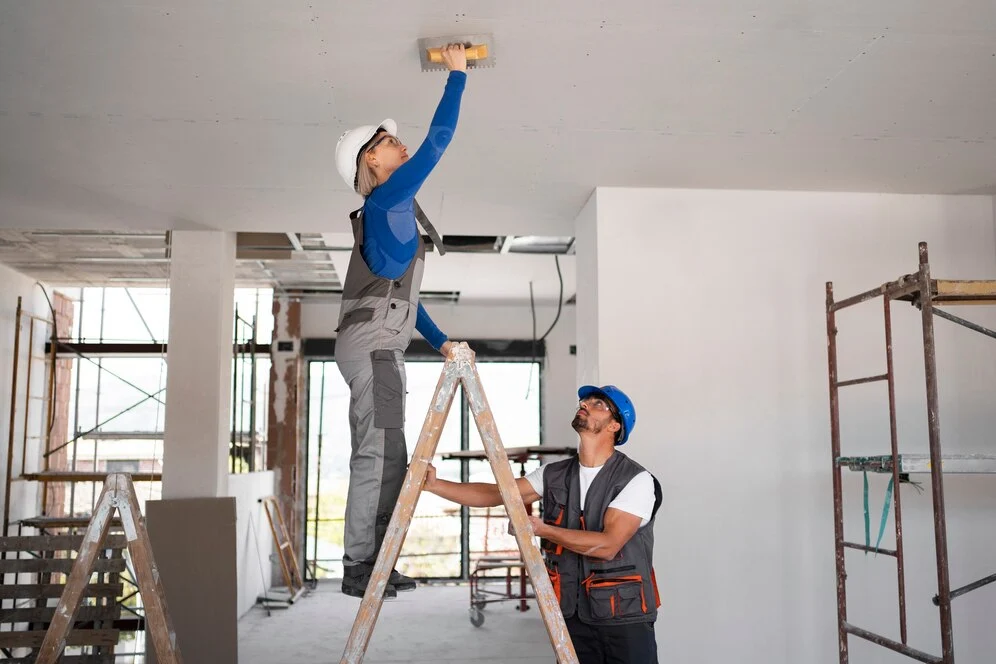Understanding the Scope of Your Renovation
Assessing Your Needs and Goals
Before you start tearing down walls, take some time to assess your needs and goals. What do you want to achieve with your renovation? Are you looking to increase your home’s value, improve functionality, or simply refresh its appearance? Write down your priorities and think about how each change will benefit your daily life.
Budgeting for Your Renovation
Budgeting is a crucial step in any renovation project. Determine how much you’re willing to spend and allocate funds for each aspect of the renovation. Don’t forget to set aside a contingency fund for unexpected expenses. By having a clear budget, you can avoid overspending and ensure that your project stays on track.
Setting a Realistic Timeline
Setting a realistic timeline is vital for a smooth renovation process. Consider the scope of the project and the availability of contractors. Be prepared for potential delays and factor in some extra time to handle unforeseen issues. A well-planned timeline will help you manage expectations and reduce stress.
Choosing the Right Professionals
Finding Qualified Contractors in Sydney
Finding the right professionals can make or break your renovation. Look for contractors with experience in similar projects and a good reputation in Sydney. You can start by asking for recommendations from friends and family or searching online for reviews.
Checking References and Reviews
Once you’ve shortlisted potential contractors, take the time to check their references and reviews. Contact previous clients to learn about their experiences and visit completed projects if possible. This will give you a better idea of the contractor’s reliability and quality of work.
Ensuring Proper Licensing and Insurance
Ensure that the contractors you hire are properly licensed and insured. This protects you from liability in case of accidents or damage during the renovation. Verify their credentials and ask for proof of insurance before signing any contracts.
Design and Planning Essentials
Creating a Vision Board
A vision board is a great way to visualize your renovation ideas. Collect images, materials, and color schemes that inspire you. This will help you communicate your vision to your contractor and ensure that everyone is on the same page.
Prioritizing Functional Spaces
While aesthetics are important, functionality should be a top priority in your renovation. Think about how you use each space and design accordingly. For instance, if you love cooking, invest in a high-quality kitchen with ample storage and counter space.
Selecting Materials and Finishes
Choosing the right materials and finishes is key to achieving a cohesive look. Opt for durable and timeless options that will stand the test of time. Consider your home’s overall style and select finishes that complement it.
Incorporating Energy-Efficient Solutions
Incorporating energy-efficient solutions can save you money in the long run and reduce your environmental footprint. Look for energy-efficient appliances, lighting, and insulation. These upgrades not only benefit the planet but also enhance the comfort of your home.
Navigating the Renovation Process
Obtaining Necessary Permits
Before you begin any major renovations, check if you need permits. This ensures that your project complies with local regulations and avoids potential legal issues. Your contractor should be able to guide you through the permitting process.
Communicating Effectively with Your Contractor
Effective communication with your contractor is essential for a successful renovation. Establish clear lines of communication and set regular check-ins to discuss progress and address any concerns. Don’t hesitate to ask questions or request changes if something doesn’t feel right.
Managing Unexpected Challenges
Renovations rarely go exactly as planned, so be prepared to manage unexpected challenges. Stay flexible and work with your contractor to find solutions. Keeping a positive attitude and an open mind will help you navigate any bumps in the road.
Final Touches and Moving In
Inspecting the Completed Work
Once the renovation is complete, conduct a thorough inspection of the work. Look for any issues or unfinished tasks and address them with your contractor. This ensures that everything meets your expectations before you move in.
Adding Personal Touches
Personal touches make your house feel like home. Add decor, furniture, and accessories that reflect your style and personality. These finishing touches bring warmth and character to your newly renovated space.
Enjoying Your Newly Renovated Home
Finally, take the time to enjoy your newly renovated home. Celebrate the hard work and effort that went into creating your dream space. Host a housewarming party or simply relax and appreciate your beautiful new surroundings.
Ready to Start Your Home Renovation in Sydney?
Your dream home is just a renovation away! At MGB Joinery, we specialize in turning your renovation ideas into reality. Contact us today for a free consultation and let’s start planning your perfect home makeover.
FAQs
- What are the common pitfalls to avoid during a home renovation in Sydney?
Common pitfalls include underestimating the budget, failing to plan adequately, choosing the wrong contractor, and not obtaining necessary permits. To avoid these mistakes, it’s important to do thorough research and planning.
- How do I determine the return on investment (ROI) for my home renovation?
To determine the ROI, consider the cost of the renovation versus the potential increase in your home’s value. Research local property values, consult with real estate experts, and compare similar renovated homes in your area.
- What are some cost-effective ways to renovate my home in Sydney?
Some cost-effective renovation tips include prioritizing essential upgrades, doing some of the work yourself, using recycled or refurbished materials, and planning renovations in phases to spread out costs.
- How can I stay eco-friendly during my home renovation?
To stay eco-friendly, choose sustainable materials, incorporate energy-efficient appliances and systems, reduce waste by recycling and reusing materials, and consider green building certifications.
- What should I include in my home renovation contract with the contractor?
Your contract should include the scope of work, detailed cost estimates, payment schedule, timeline, warranties, insurance coverage, and procedures for changes or disputes. A clear and comprehensive contract helps protect both parties.






